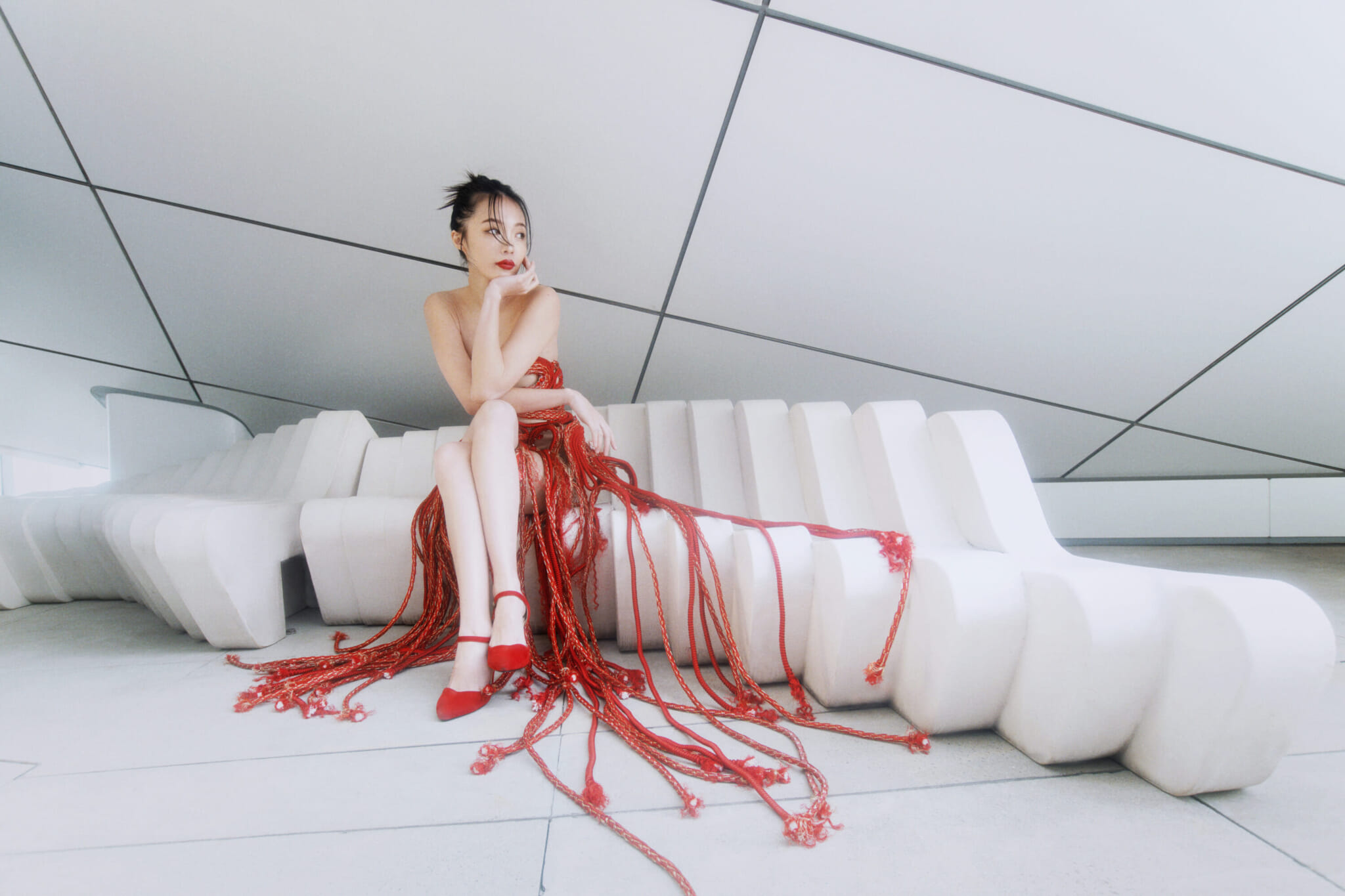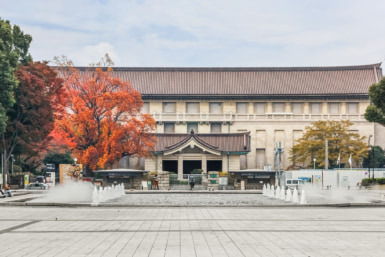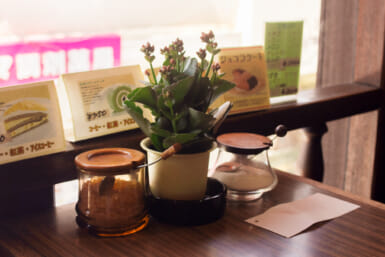This article appeared in Tokyo Weekender Vol. 2.
To read the entire issue, click here.
On YouTube, you can watch Reiko McNish Sato go about her daily life: in and out of cars, stylish and assured, shooting smiles to the camera between a flurry of meetings, interviews, recording sessions for her podcast, consultations, fittings and events. On Instagram, she models her own designs against a variety of pristine backdrops and offers behind-the-scenes glimpses into her creative process. It’s a lifestyle that telegraphs as enviable and aspirational, but McNish Sato never hides the fact that it’s really, really a lot of work.
The CEO-slash-designer is building an empire focused on modern Japanese design, though such a concise explanation belies the scope of her ambition — having started with Amateras, a loungewear brand that she built from the ground up, she’s since embarked on a wide variety of new ventures to elevate Japanese culture, both at home and abroad. Along the way, she has a message she hopes to spread to young people in her home country: You can do this, too, but you have to be willing to take some risks.
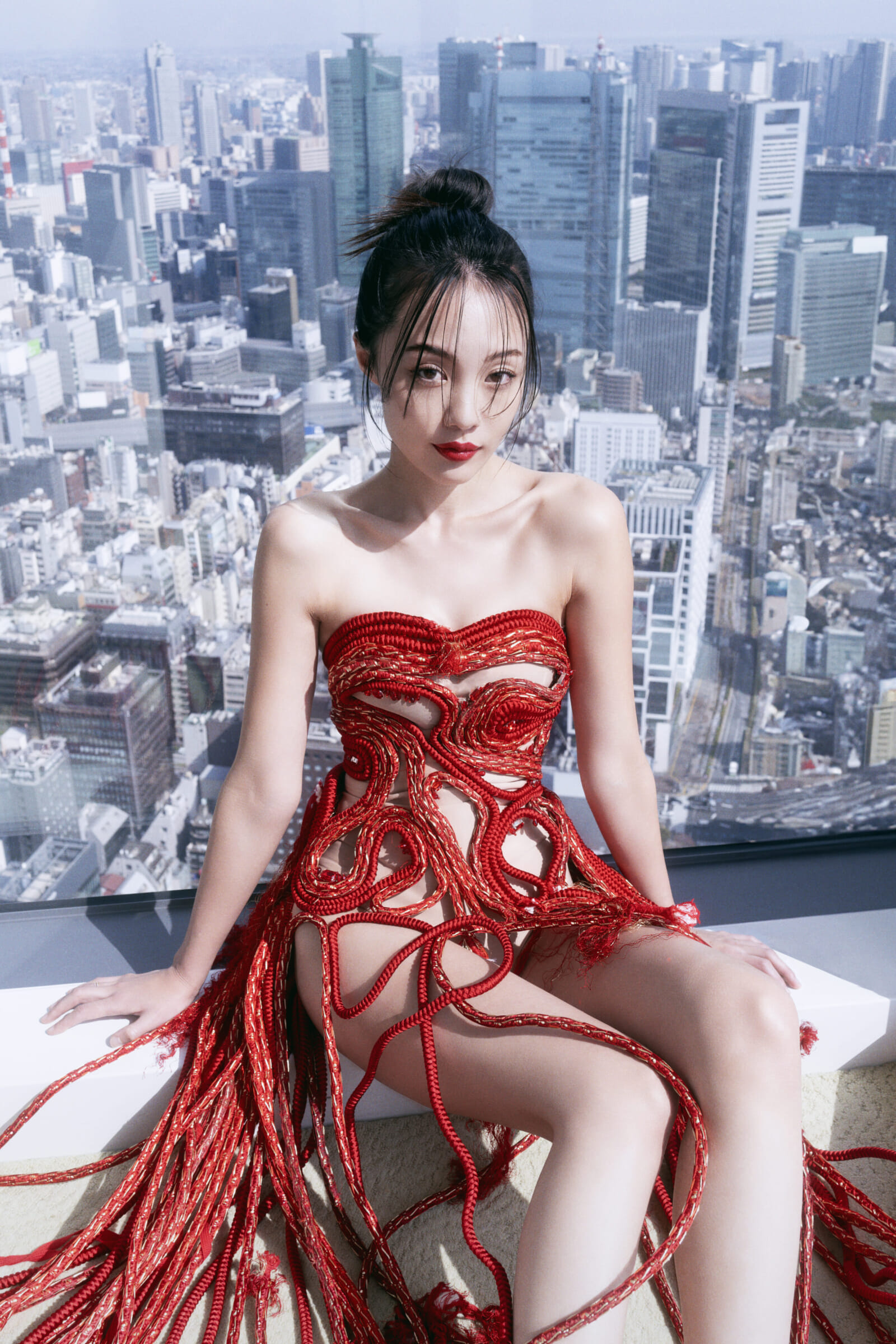
In person, McNish Sato is slight yet commanding. She pulses with quiet intensity, speaking softly and carefully, occasionally pausing at length to formulate her answer. She gives the impression of being intently contemplative, listening closely and making near-constant eye contact. At first, she seems reserved, but as our conversation progresses, I realize that she’s just taking the time to arrange her thoughts precisely; beneath her serious exterior lurks a subtle sense of humor and a sublime gentleness that emerges in a sunburst when she smiles.
McNish Sato has had an unwavering determination since she was young. “Maybe it has something to do with being an only child,” she says. “I’m always battling with myself.” She was born in Tokyo and raised from the age of 10 in Canada; though her last name sometimes causes confusion, both her parents are Japanese. (McNish comes from her stepfather, whom her mother married when she was 13.)
She spent her adolescence and teenage years in Canada, speaking only English, but when it was time to apply to college, she felt drawn back to Tokyo. “I think I was very Westernized back then, when I was in Canada. For me, Tokyo was like the coolest place on the planet: They have all these tall, futuristic buildings and, like, there are probably, like, robots working everywhere — I literally had that idea as a high school student,” she says with a laugh.
At that time, like many people who’ve lived between cultures, she felt uncertain about her identity. In Canada, she was considered Japanese; in Japan, she was called kikokushijo — returnee child. “People asked me, ‘What’s your identity?’ But I’m like, ‘I don’t know!’ I mean, I think in a very American or Canadian way; [back then,] I spoke English better than Japanese, but I think I have the soul of a Japanese person.”
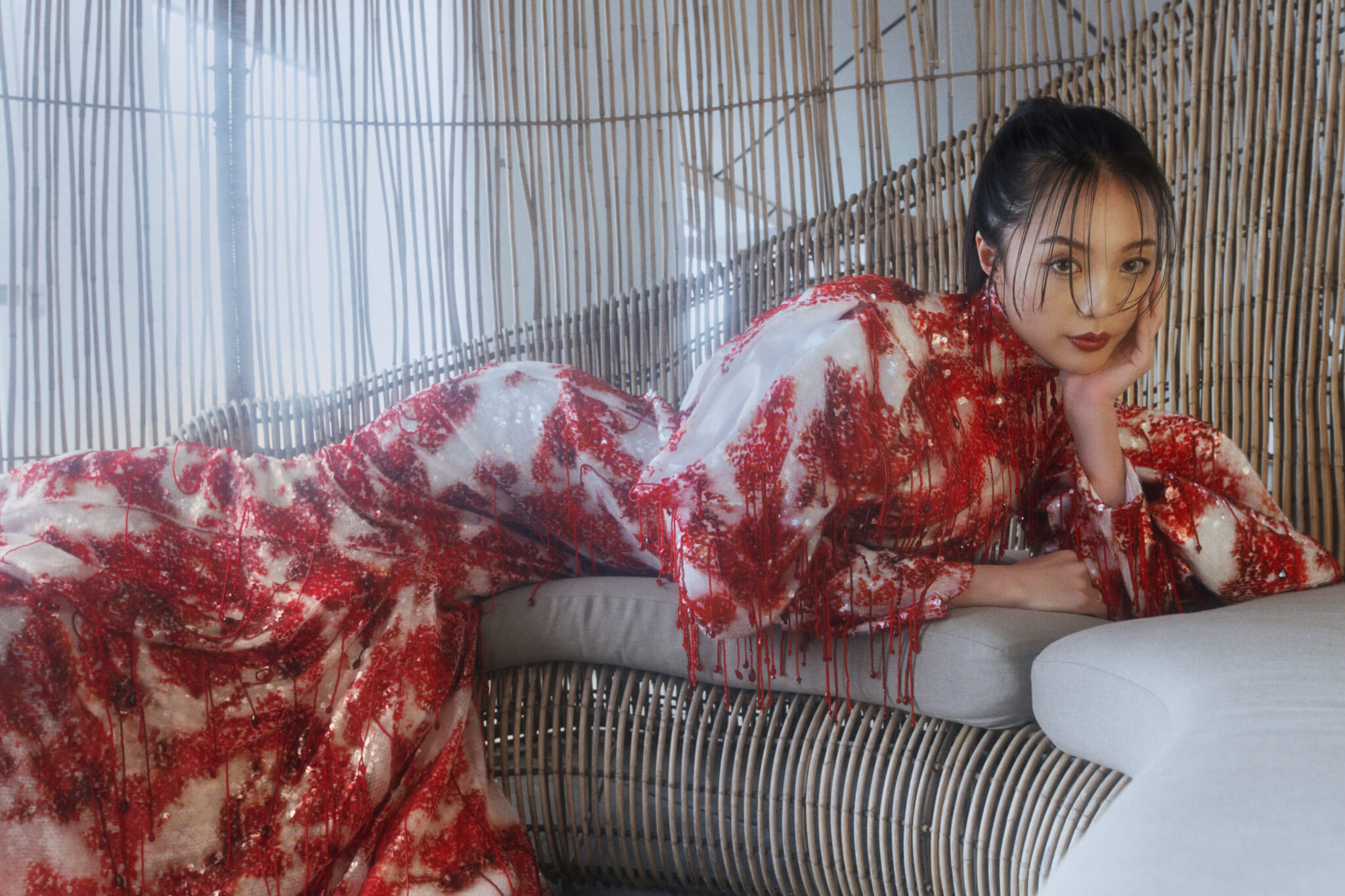
When McNish Sato moved back to Tokyo, she attended an international college and reimmersed herself in the Japanese language. She also modeled and DJed, and started a YouTube channel to showcase her daily life. “I wasn’t really doing [YouTube] for work. I was just posting with friends — you know, just fun content,” she says. But the videos started to attract more and more viewers, and she developed a dedicated following. “Because my friends were all half-Japanese, or we all spoke English but we looked Japanese, it was very interesting for the Japanese viewers,” she explains.
As her popularity grew, she began to notice a certain type of comment popping up — expressing envy about how her life seemed so Westernized. Although she emphasizes that she’s thankful for her fans’ support and humbled by their admiration, she was troubled by the implication. She saw it as a reflection of a much larger problem: “It saddens me to see so many young people with a strong longing for Western culture, unaware of the good aspects of their own country,” she mused in an Instagram post a few years ago.
This experience is one of the seeds from which Amateras was born. “I was definitely influenced by those kinds of comments,” she says. “I am grateful, but at the same time … it was something that was always weird to me. But then I realized it was probably something I can make a change to.”
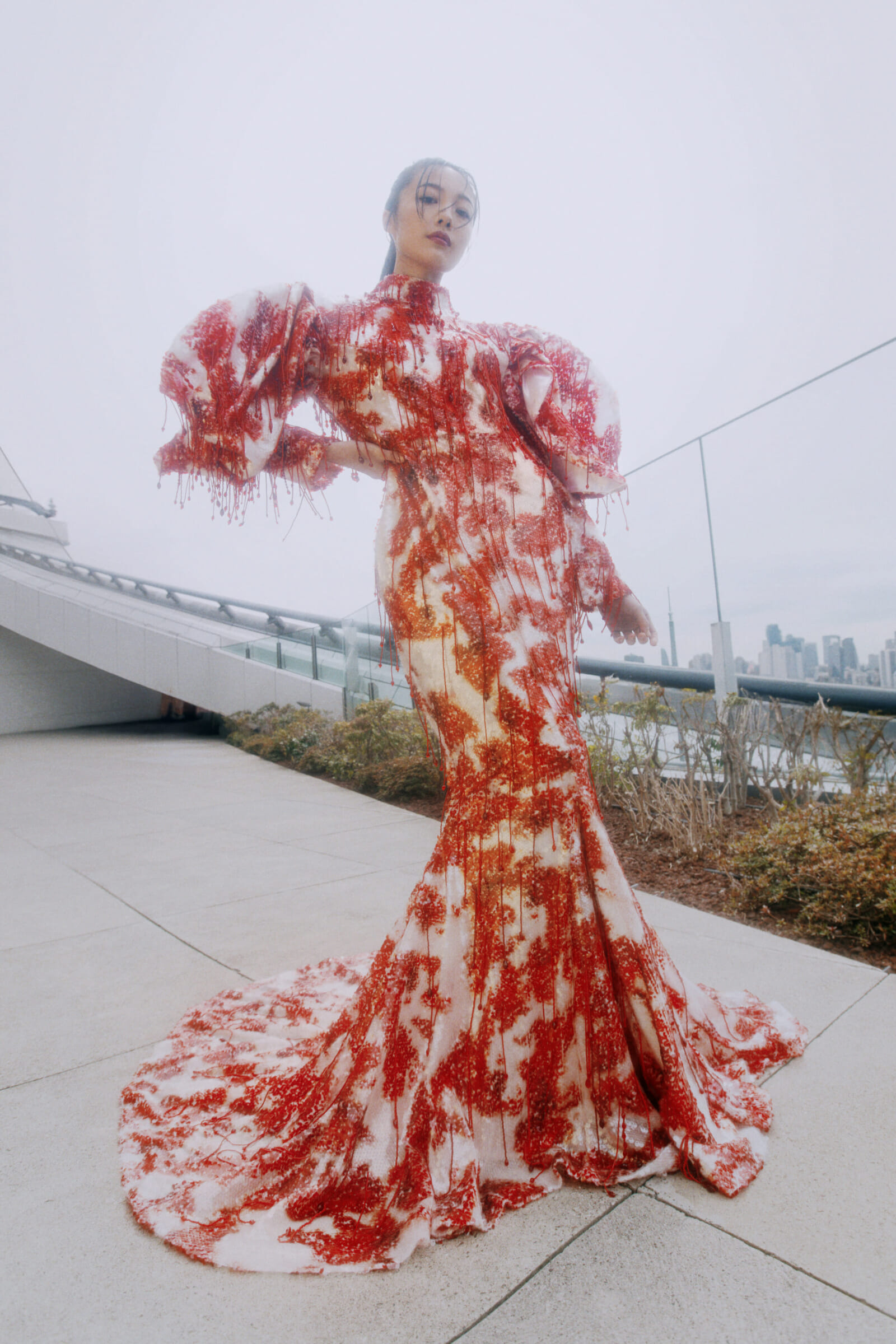
McNish Sato launched Amateras during her senior year of college, working on her own with money she’d earned from modeling; the first collection consisted of just one kimono robe and one logo T-shirt. The name, a reference to the Shinto sun goddess, encapsulates the twin missions behind the brand: She wants to help women feel confident, and she wants to disabuse them of the notion that wholly Western-centric brands are somehow cooler or more modern than those that draw from Japanese culture. “By wearing this brand, you will be able to carry Japanese culture on your shoulders and light up the world around you like a sun deity,” reads the Amateras website.
“I wanted to create my own clothing brand with the concept of something that could be meaningful enough to uplift the perspectives of the Japanese people,” McNish Sato explains. “Amateras is a mixture of Western and Japanese styles. I kept the Western part on purpose, so that it would attract the younger generations in Japan, and it would even attract foreigners.”
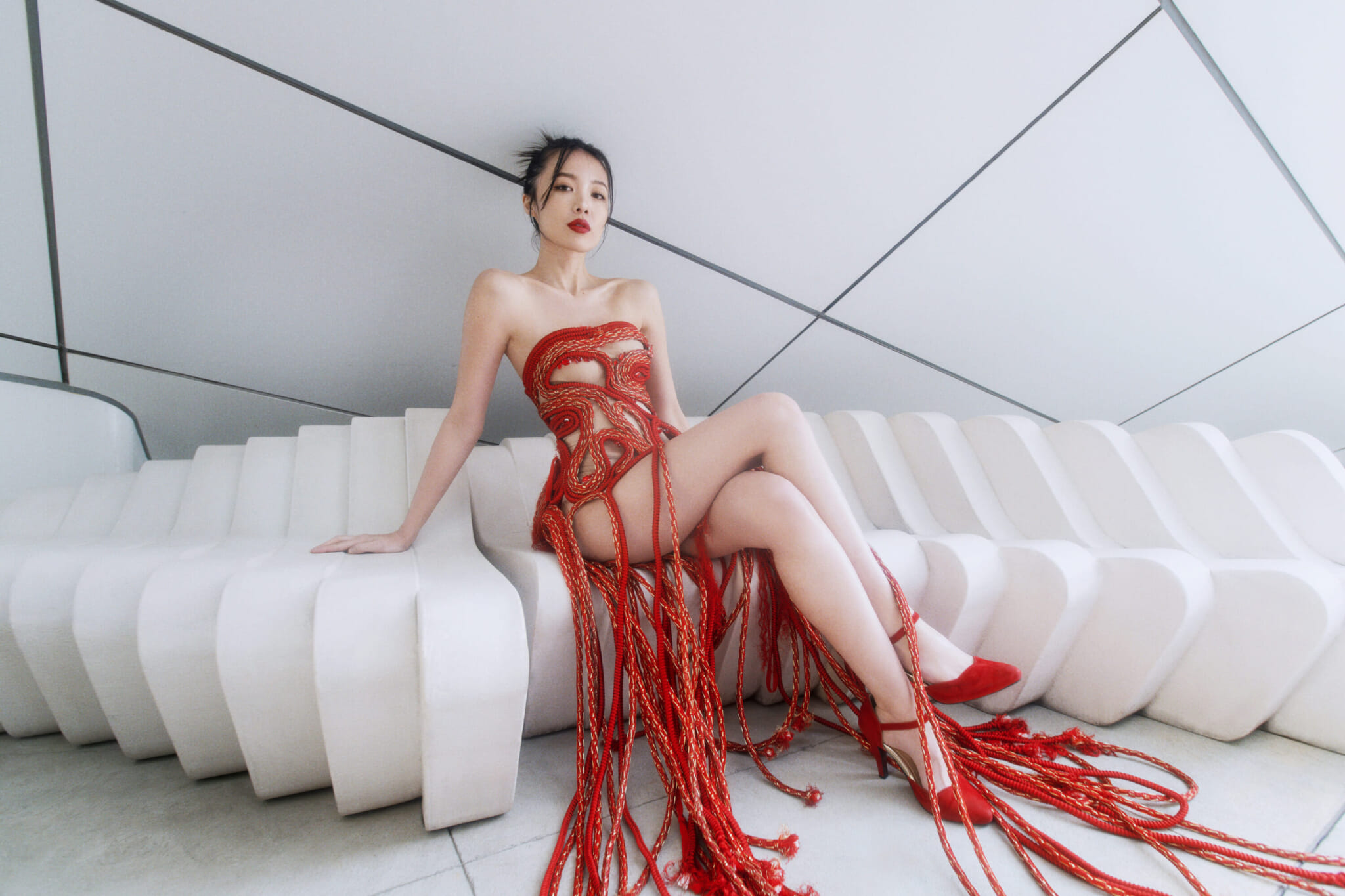
In line with this goal, Amateras’ clothing often draws from traditional Japanese prints, motifs and color palettes, and references classic design with garments like embroidered kimono robes and geta sandals. In the past five years, the brand has grown significantly — it now also encompasses lifestyle wear, accessories and home goods, and currently employs a team of 10. (“Ten times bigger than what I started with,” McNish Sato jokes.) Looking beyond fashion, she has also ventured into other industries, such as hosting the aforementioned podcast, Tokyo Young Boss, with her friend Mila Hasegawa; exploring culinary endeavors, possibly including a matcha brand; interior and space design; and creative direction.
What connects all these disparate ventures is a desire to convey the unique appeal of modern Japan to the world. “I just started from fashion because that was the closest thing to me, culture-wise and people-wise, but I think this concept could be translated into many different industries, like hospitality, drinks, beverages, food, spaces — like, anything, right?”
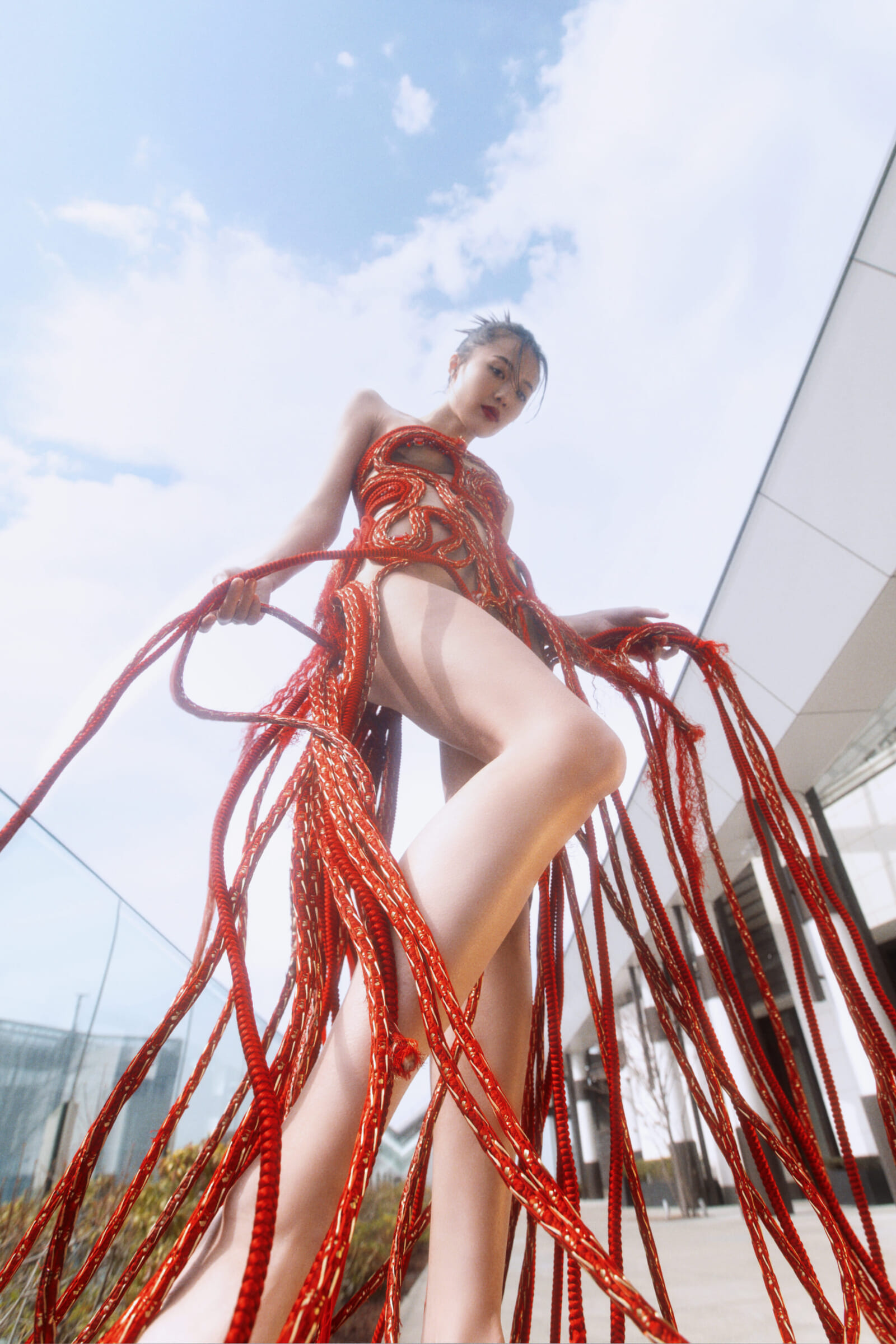
McNish Sato speaks frequently, perhaps unconsciously, about the power of influence. Although she can hardly be classified as an influencer — entrepreneur is a much more fitting term — her preoccupation with the concept is striking, as is her impact on the young women who follow her. Along with Tokyo Young Boss, she and Hasegawa operate a private community on Discord that’s 3,000 members strong. One of my friends, who has been following McNish Sato since her college days, listens to the podcast regularly. She recently quit her corporate job to work independently and have more freedom. “Reiko spreads a message to young people that women are cool, that women can have their own careers and become CEOs, too — that it doesn’t matter whether you’re a man or a woman,” she told me.
It’s clear that McNish Sato conceptualizes the public persona she’s built as more of a conduit through which influence can flow. She talks about it in a way that’s very clear-minded, ambitious and surprisingly detached from herself or her ego; she speaks constantly about reaching Japanese women, Japanese young people, Japanese young women. When podcasting, she addresses this audience directly. On her YouTube channel, she aims to teach by example by showing how a female entrepreneur leads her life. With her fashion line, the goal was always to position Japanese design, and by extension Japanese culture, as something worth coveting and celebrating.
Simply put, she wants to inspire people to change their thinking, gain confidence and be more ambitious because she believes it would be freeing for them. “There’s a saying in Japanese, migi ni narae — like, if you look at the right, everybody has to look at the right,” she says. “If the prime minister says, ‘Left!’ you have to all look at the left. But we’re not minions, you know? We have our own lives, we only live once, we have to build our own lives. There’s nothing wrong about having an opinion about what you want to do or what you don’t want to do.

“I think I want to try to change that mindset,” she continues softly. “That’s the core thing that I have behind all the things that I’m doing.”
She sees the issue as twofold. The first problem is that young people are reluctant to express their honest thoughts, for fear of being divisive or wrong. The second is that their ambitions tend to be constrained. “In Japan,” she says, “younger people just don’t have a dream compared to other countries.” Japan is a country with relatively strong job stability and security; because of that, maybe, young people are more averse to hustling or risk-taking. “They can have a normal life without trying, without challenging anything. So I guess that’s why a lot of people choose to be stable rather than taking risks,” she says. “But you only live once. Make your life more fun, right?”
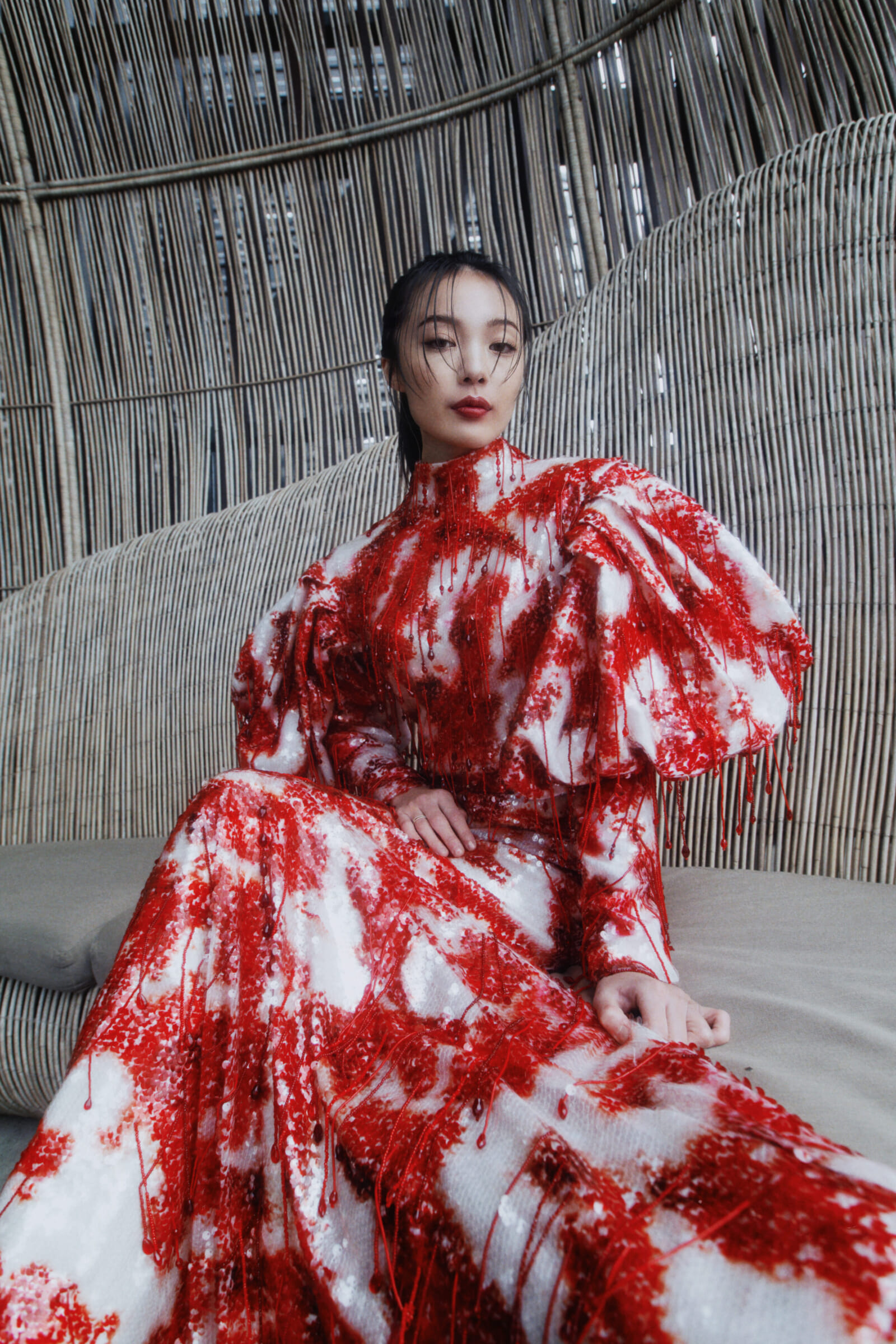
Though our conversation meanders quite a lot over the course of an hour and a half, all roads lead back to the fundamental mission underlying all her professional choices: She wants Japanese people to cherish Japanese culture and dream bigger. “It’s not like I want to change the culture; it’s not like I want to change society,” she emphasizes. “It’s more like, I want to be able to change the way these people think, because they can be confident about themselves. I want them to learn how to love themselves, how to be confident about themselves — it’s OK to have your own opinion, it’s OK to speak up.”
The main thing she wants to communicate, she says, is that being different and daring to think differently is a good thing. “I want everybody to know that. Especially in Japan, being different is taken as a negative thing, but being different can be cool. It can be a successful thing. I want to try to deliver that through my own work and success.”

